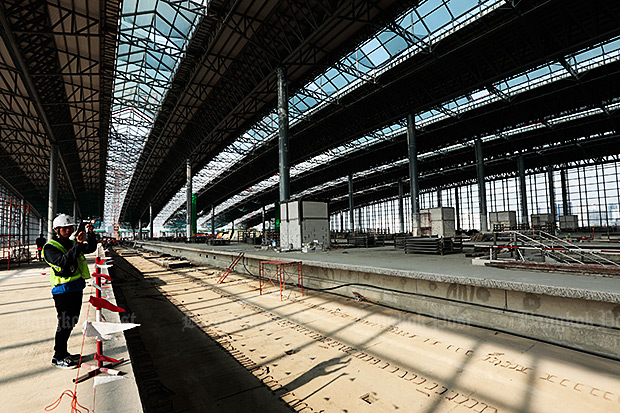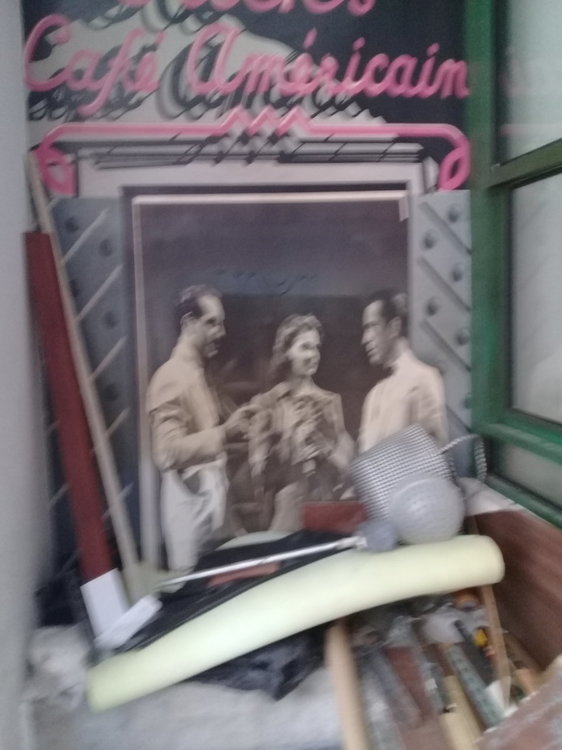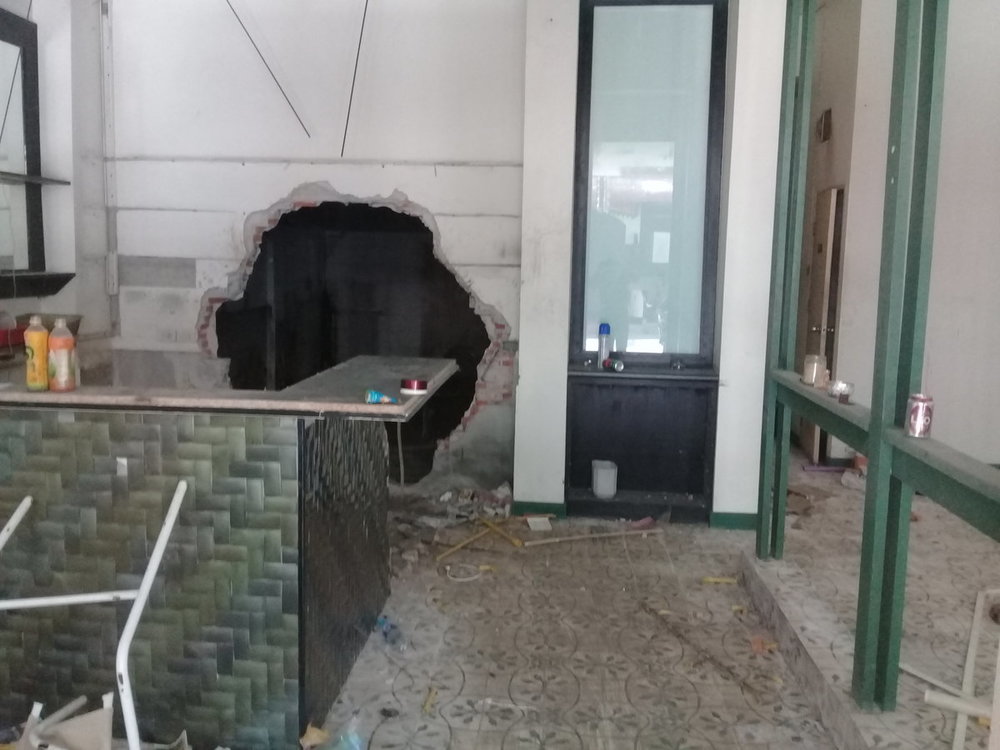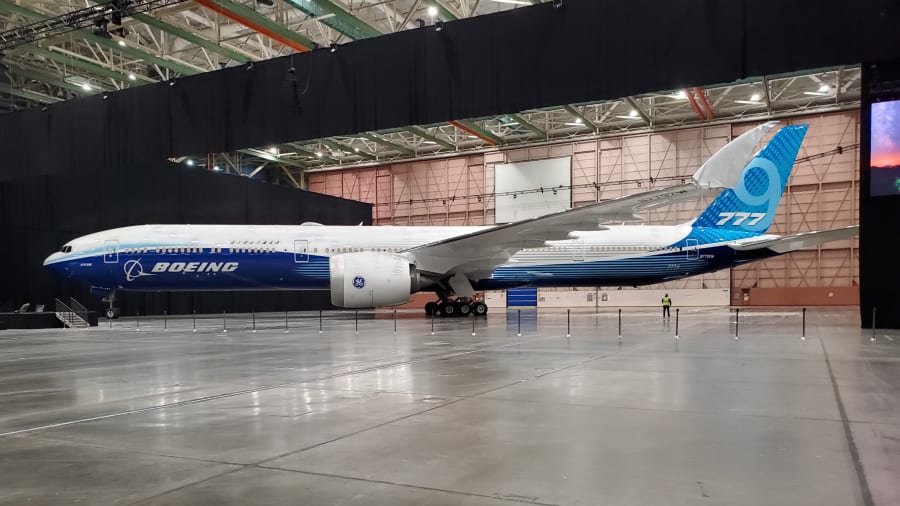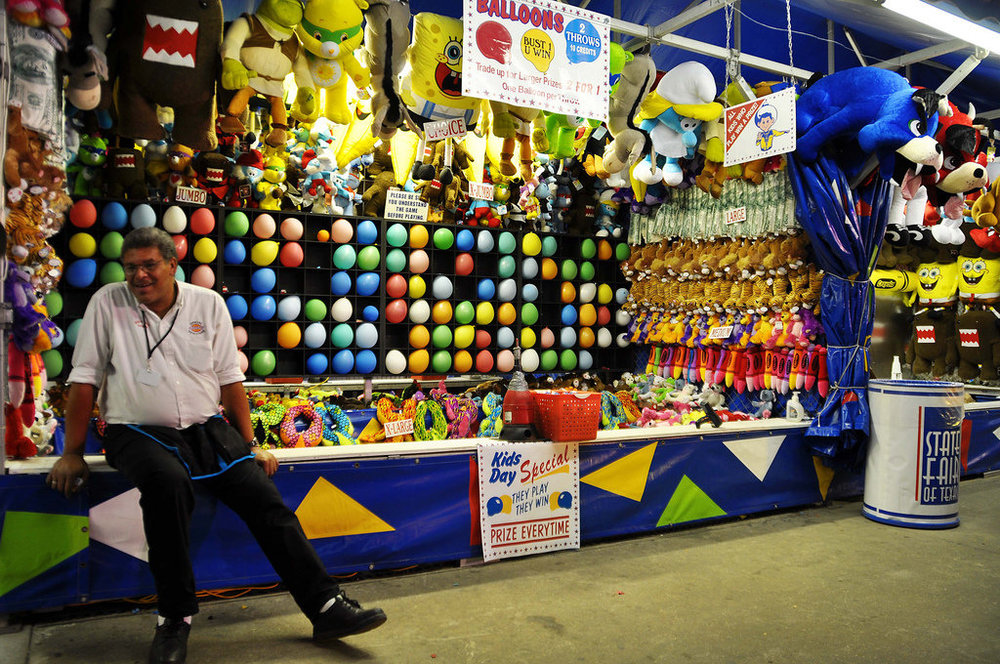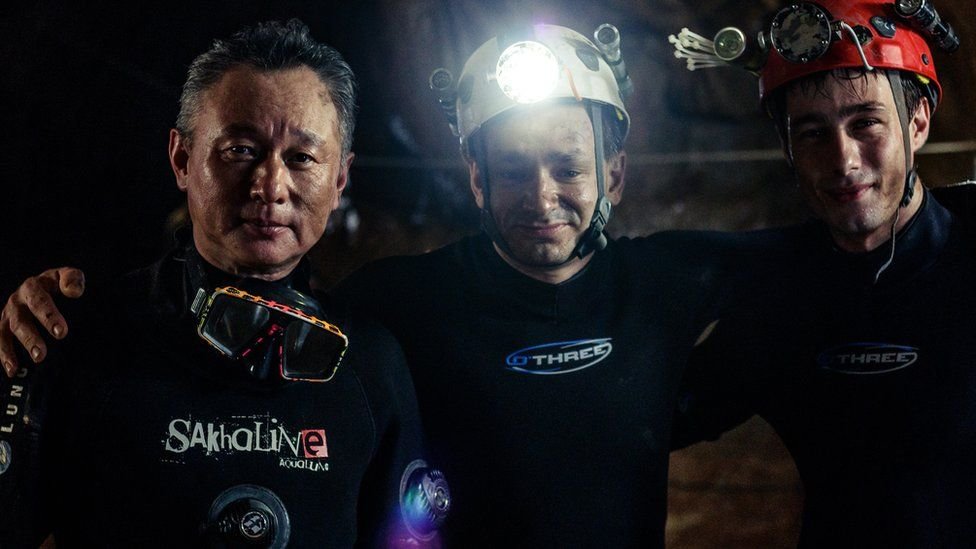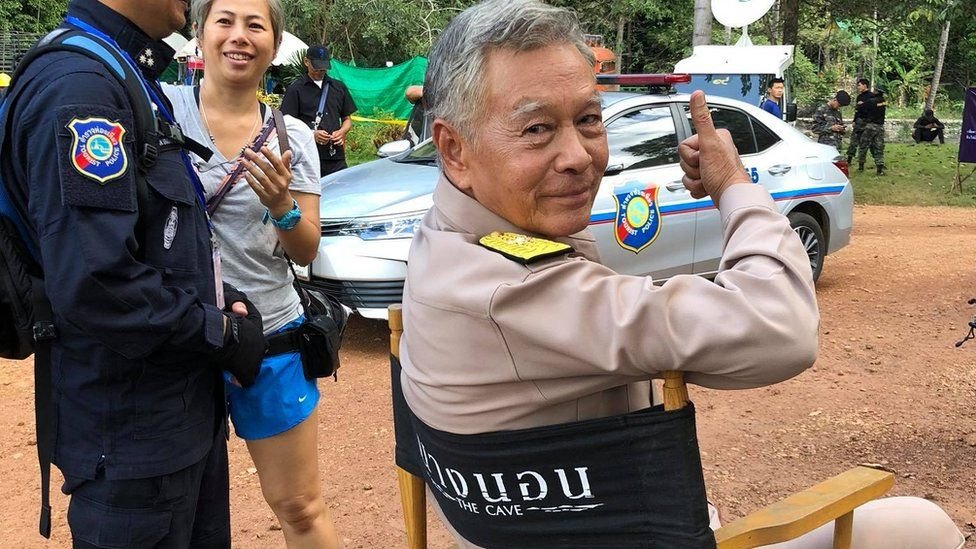
reader
Members-
Posts
10,128 -
Joined
-
Last visited
-
Days Won
261
Content Type
Profiles
Forums
Events
Everything posted by reader
-
I'm giving this old thread a bump for a few reasons. It was the first to discuss the possible closing of Soi Twilight in detail. Many members contributed opinions about the future of Twilight's venues and some of those prognostications have since come to fruition. You'll find additional discussion of the topic in the following post:
-
The speed at which the nation's leaders moved to ban assailant weapons stands in stark contrast to the feeble reaction US lawmakers can be counted on to display in the wake of similar tragedies.
-
I, too, aborted visited a visit on my recent trip by the smoking. If anything, I think smoking in just about all venues has increased over the past several years. Even in the outside bars, non-smokers frequently have to weigh the options of tolerating the air or moving on to a hopefully less--but rarely smoke free--environment. I know of several VN massage guys who congregate at Screwboy when their shifts end about midnight. As is the case in many bars, the scene can change noticeably from night to night so one disappointing visit could be quickly forgotten on a different evening.
-
Although much attention has been focused on the north east provinces and rightfully so, this article raises of the potential impact of voters in the south on Sunday's election. Reuters (22 Mar.) In Thailand's restive deep south, election stirs rare enthusiasm YALA, Thailand (Reuters) - Pateemoh Poh-itaeda-oh, 39, has lost four family members to violence in Thailand's deep south, where a Muslim separatist movement has fought against rule from Bangkok for 15 years. Now, she is running for a parliamentary seat in a general election on Sunday, hoping to have a hand in making government policies for the restive region. Sunday's vote is broadly seen as a battle between allies of the military junta leader seeking to stay in power and supporters of ousted ex-premier Thaksin Shinawatra, a former telecommunication tycoon whose loyalists have won every general election since 2001. But that divide has a different dynamic in the three southern border provinces of Pattani, Yala, and Narathiwat, which are 80 percent Muslim, while the rest of Thailand is overwhelmingly Buddhist. A separatist insurgency has dragged on since 2004, killing more than 6,900 people. In January, two Buddhist monks were shot dead in a suspected insurgent attack. In previous elections, the deep south was not much courted by politicians seeking national power. But the arrival of several new parties on the political scene, along with stalled peace talks, have stirred interest in the campaign in the south - and enthusiasm to participate among newly minted candidates. Pateemoh, a Muslim who is a candidate for the pro-junta Action Coalition for Thailand party (ACT), said she got involved because she felt for the first time there was a chance for the concerns of the south to be heard and - possibly - bring an end to the conflict. "For a long time many Thais have looked at problems in the deep south as a marginal border issue, but this election I have seen changes," she told Reuters at her party headquarters in Yala province. Ending the insurgency is deeply personal to her. Three of her brothers and one sister have been shot dead since 2004 in suspected attacks by insurgents, who often target teachers and local officials for working with central government. "I really want to be a voice in forming policy and solving the conflict issue in the deep south, and people have to remember that women's voices need to matter in this process," she said. SELF-DETERMINATION The three provinces, and a small part of neighbouring Songkhla, were historically part of a Malay Muslim sultanate annexed by Thailand in 1909. Separatist tensions have simmered ever since. A peace process between the Thai government and insurgent groups has made little headway, with violence still occurring even though the military has been directly in charge of security in the region for 15 years. In February, Mara Patani, an umbrella organization representing many insurgent groups, said it has suspended all dialogue with Bangkok until after the election. For decades, the deep south's small tally of seats - 11 out of 350 being contested in this election - were seen as a reliable bloc for the Democrat Party, the country's oldest political party that is officially non-aligned in the campaign but could prove crucial in post-vote coalition-building. But the fresh attention being paid to the region by new parties has stoked pent-up desire for a say among both the pro-government and pro-autonomy camps there, said Samart Thongfhua, a political analyst at Prince of Songkla University in Pattani. "Generally, people in the deep south are enthusiastic from all sides because they will feel that they can gain justice through democracy," he said. RELIGIOUS TENSIONS This is the first election that a Malay Muslim from the deep south, Wan Muhamad Noor Matha, 74, is a prime ministerial candidate. Matha, a former house speaker and the leader of Prachachart Party, is a key ally to Thaksin who could help capture votes for the "democratic front" of anti-junta parties in the deep south. Pro-Thaksin parties have in the past performed badly in the region, where he was widely blamed for exacerbating the conflict with harsh tactics when he was in power from 2001 to 2006. https://news.yahoo.com/thailands-restive-deep-south-election-stirs-rare-enthusiasm-111714047.html
-
I've posted reports on individual massage experiences during recent trip in other threads but am posting a capsule account here as this is the go-to place for Bangkok massages info. Total massages: 12 In-call: 5 (1 guy x 3 and 2 others both known from previous trips) and all were fine. Nakarat: 4 total (1 x 2 and 2 others). All good. I recommend this place. Decent selection afternoons but more arrive after work. AEN: 1 visit and fine. Recommended. Think it is probably better to go after 5 when availability is better. Indra on Soi Tarntawan: 1 visit and fine. Be sure to get room with en-suite shower shower. Many VN guys with good selection most hours. Art Massage on Soi Tarntawan: 1 visit and fine. Good selection most hours.
-
From Bangkok Post (21 Mar.) Bang Sue rail hub work on track Construction of Bang Sue Central Station, which will replace Hua Lamphong as the city's rail transport hub when it opens in 2021, is almost 71% complete. A progress report was given to Prime Minister Prayut Chan-o-cha who on Wednesdaypaid a visit to the 264,000-square-metre site. Bang Sue Central Station will not only serve as the country's main rail hub, but will also connect the country's rail system to the rest of Asean. He also said areas surrounding the train depot will become "green spaces" and commercial development projects will be developed nearby. Bang Sue Central Station will have three storeys and a subterranean level, which serves as a parking area accommodating 1,700 vehicles, according to the plans. The first floor is for ticket sales and reservations, along with commercial areas. The second floor is for suburban Red Line trains, with four platforms for short-distance services and eight platforms for long-distance train services. The third floor will have 10 platforms for regional train services and has another two earmarked for high-speed trains and airport rail link services in the future. It will also have a walkway connecting to the Blue Line mass transit system. The Red Line project (Bang Sue-Rangsit, Bang Sue-Taling Chan) will become operational simultaneously with Bang Sue Central Station. Two trains that will be used for the Red Line's test runs will arrive in June. https://www.bangkokpost.com/news/general/1648172/bang-sue-rail-hub-work-on-track-pm-told
-
Will the last person to leave please turn off the lights. That task may well fall to you, Paul, as you'll be there for the duration.
-
Think this needs to be fact-checked by CNN like the do the wild Trump claims. LOL. Confident that at least a half-dozen X-boy guys will come forward with conflicting info. And we both know that you're loathe to cry in a guy's presence (except of course if off leaves before breakfast).
-
-
From Bloomberg News (16 Mar..) Thai Growth Will Ride Out Any Election Unrest Once the dust settles, attention will return to completing a key economic project that’s already attracted billions of dollars in foreign investment. Thailand’s long-delayed elections to be held on March 24 have stirred concern among some analysts that we will see a fresh round of protests and social unrest. Investors should look past any temporary disruption. Whatever the result, Thai leaders will move forward with a landmark project that will support growth in what has been one of the most economically stable countries in Southeast Asia for the past two decades. First, a little background: In May 2014, the Royal Thai Armed Forces initiated a successful coup, leading to the impeachment of then-Prime Minister Yingluck Shinawatra, the dissolution of the senate and government, and the repeal of the Thai constitution. Since then, the military-backed National Council of Peace and Order has ruled the country, with retired General Prayuth Chan-Ocha serving as prime minister. Though the junta regularly detained dissidents and has squashed most free speech, the economy grew at a decent clip between 2014 and 2018. Data from last year indicate that gross domestic product rose by about 4 percent, much of that fueled by tourism and manufacturing. Tourism alone represents almost one-fifth of the economy, with the Tourism Authority of Thailand predicting more than 40 million international tourists will flock to the country this year. That said, poverty and widespread corruption remain pressing issues. Though Thailand’s overall poverty level has dropped dramatically in the past two decades, to less than 7 percent of the population in 2017 from 21 percent in 2000, Unicef estimates that more than seven million people, mostly in rural areas, live on less than $88 per month. And while the junta has promised plenty of initiatives to combat political corruption, the simple fact is that graft exists at virtually every level of government. The University of the Thai Chamber of Commerce estimates that most businesses pay between 25 percent and 40 percent of contract values under the table to politicians and bureaucrats to secure work and get projects moving, according to the Bangkok Post. In other words, bribes are factored into the cost of doing business in Thailand. Don’t expect that to change after the election. After the political dust settles, the focus will be on building the Eastern Economic Corridor, or EEC. In development for the past 30 years, the sweeping and ambitious project encompasses roughly 5,000 square miles between the provinces of Chonburi, Rayong and Chachoengsao, and is Thailand’s hub for export-oriented industries. The $54 billion project has a 2021 completion deadline. The current government is ramping up foreign and domestic investment in transportation infrastructure; developing business and innovation hubs; promoting tourism; and creating so-called “smart” cities. The EEC has proven mighty attractive to overseas investors, with more than $9 billion in pledged foreign investment as of the start of last year, according to Thailand’s Board of Investment. Hundreds of projects in everything from agriculture to robotics are finding eager supporters, mostly from Japan, Singapore, the U.S. and China. Continues with chart and video https://www.bloomberg.com/opinion/articles/2019-03-16/thailand-s-economic-growth-will-survive-any-election-unrest?srnd=premium-middle-east
-
From Bloomberg News (12 Mar.) Thailand’s Tourism Industry Getting Top Share of LGBT Spending Thailand is advancing same-sex partnership legislation. And one of the nation’s biggest industries, tourism, is paying close attention. Amid an election campaign, a measure that would give gay and lesbian couples more rights -- yet doesn’t legalize same-sex marriage -- was approved by the Cabinet and was headed to Parliament. Though the session ended before the bill became law, the tourism industry is using the occasion to actively promote Thailand as an LGBT-friendly destination. “Thailand already has products and offerings catered to this market, and now our focus will be how we can better serve them,” Srisuda Wanapinyosak, a deputy governor for the Tourism Authority of Thailand, said in an interview. This year the Tourism Authority will host an LGBT travel symposium and plans more participation in pride parades in such cities as New York and Tel Aviv. Last month, it released a promotional video featuring LGBT travelers, including well-known lesbian bloggersRoxanne Weijer and Maartje Hensen. At a Madrid tourism event in January, the industry had a booth for the first time promoting Thailand specifically to gay and lesbian travelers. The country’s tourism industry represents about one-fifth of the economy and is growing at a faster pace than other sectors. The LGBT market has become key to the industry’s fortunes. According to the investment firm LGBT Capital, tourism revenue from that community contributes 1.15 percent to Thailand’s economy, a greater share than any other destination. Continues with photo https://www.bloomberg.com/amp/news/articles/2019-03-12/thailand-s-tourism-industry-looks-to-cash-in-on-same-sex-law
-
From CNN (14 Mar.) The world's longest passenger plane is here -- the Boeing 777X The longest passenger jetliner in the world just made its debut. On March 13, the very first Boeing 777X was presented to company employees, inside the airframer's main wide-body manufacturing facility in Everett, Washington. Boeing had planned to unveil the jetliner on Wednesday, but delayed the debut following the crash of its aircraft in Ethiopia. The event was simplified to respect the recent loss of Ethiopian Airlines Flight 302, a Boeing 737 MAX 8. At 252 feet, the 777X is longer than its predecessor, the 777-300ER, and the super-stretched Airbus A340-600. It'll even be longer by a nose than the current record-holder, the 747-8, the latest version of Boeing's own "Queen of the Skies" whose aviation-changing ancestor flew 50 years ago. With its maiden test flight expected later this spring, the 777-9 is the larger of the two 777X models that make up Boeing's jetliner program. continues with photos http://edition.cnn.com/travel/article/boeing-777x-what-you-need-to-know/index.html
-
Returning to the topic, a record voter turnout is predicted. From Bangkok Post (14 Mar.) The March 24 election could see an unprecedented voter turnout, according the King Prajadhipok's Institute (KPI). The institute found almost 95.9% of people who responded to its latest survey, carried from March 7-10, said they intend to vote. It is the fifth poll-related survey the KPI has conducted with 1,540 respondents nationwide, according to KPI secretary-general Wutthisan Tanchai. https://www.bangkokpost.com/news/politics/1644260/voter-turnout-tipped-to-hit-new-high
-
From Bangkok Post (14 Mar.) A new direct flight from Bangkok makes Nha Trang and the lesser developed Cam Ranh accessible for Thais. Unlike Hanoi, Sapa, Danang, Hue, Hoi An, Dalat, Mui Ne and Ho Chi Minh City, Nha Trang (pronounced ya jang) is not a familiar name for Thai travellers. But with a direct air link between Bangkok and this Vietnamese city, recently introduced by Bangkok Airways and soon to be followed suit by another airline, that is about to change. Continues with photos https://www.bangkokpost.com/news/asean/1644168/vietnams-up-and-coming-destinations
-
OMG, Witty. A travel tip of the first order: take the slow train and save.
-
I don’t think English is his first language. Thais overlook our mangled attempts at their language if we even go as far as to try to speak it. And they don’t call it gogglegook.
-
Some possible reasons he took a taxi: 1. He wanted ro 2. He chose to spend his money for this particular type of serviice Fellow Westerners frequently spend their money on things I deem frivolous: organic products, cigarettes, big cars. But it’s their money to do what they wish with it. My rationale doesn’t count. Yes, he could have made othe choices but its his time and his money.
-
Brexit makes the Thai political system look downright rational.
-
The following article from Singapore-baes Channel News Asia presents an objective and comprehensive take on the elections without touching on controversial topics. From Channel News Asia (12 Mar. 12) For the first time in nearly five years, Thailand will leave the military rule for democracy. Here is what you need to know about the Thai election on Mar 24 and the political game that would determine its future. BANGKOK: The upcoming election in Thailand is set to be one of the most complicated votes in the country’s history, with the final outcome of who will form the next government dependent on a series of factors. On a very simple level, though, the vote on Mar 24 will be the first general election under the new Constitution of 2017. It should mark a transition towards re-establishing a democratically elected government after nearly five years of rule by a military regime which took power through a coup in 2014. However, while some people believe the upcoming election will restore democracy, others believe there is scope for a subtler shift that could see the powerful military maintain its grip on Thai politics. “It’s not a regular vote under democratic rules but a means for regime change, where the military rule is reborn to continue its power,” said political scientist Dr Pitch Pongsawat from Bangkok’s Chulalongkorn University. https://www.channelnewsasia.com/news/asia/thailand-election-democracy-after-military-rule-11280022
-
My intent is not to derail the thread but the many posts jostled my memory back to 1970’s San Francisco when the Campus theater was sort of a crude Moonlight of its day. Rick Donovan is the model I recall best. William Higgins made him one of the top stars of his well-done films. Rick appeared from time to time as did other headliners of the day. He’d do some stuff on stage before walking down the isle to allow guests to deposit bills and inspect the merchandise that was the talk of the town. It was before internet and word about places like this came via word of mouth and guides like Spartacus. A different era to be sure but Campus earned all the hype Moonlight does today.
-
If you plan to return to Thailand you may find that it’s a good practice to retain sufficient local currency to cover your anticipated spending on first night of next trip. Once less hassle on arrival when you have other priorities. If you plan to use travelers checks, fewer banks seem to be accepting them. In Silom Complex, Siam Commercial Bank (SCB) still does but the agent specified American Express. Consistently i find that SuperRich provides the best currency exchange rate. The location on Silom (near Arena masssage) May be slightly better than Silom Complex location but probably not worth going out of your way on a steamy day. Silom Complex branch closes at 8p.m. Also note that after about 9p..m., the rates at independent currency exchange booths along Silom and Surawong become less favorable.
-
This Netflix series isn’t the only film project in the works about the saga. One, “the Cave,” was shot last year and is now in post production. Here’s a BBC article with photos of the filming. https://www.bbc.com/news/world-asia-46644840 Additionally, National Geographic was said to be working on a documentary (“One Day in September”) about the rescue. An older documentary made by an Australian network can be found in an August, 2018, post adove. While researching this topic, a few things seem evident: first, multiple projects are involved; second, we are aware of only tidbits of information about the precise contract terms and compensation packages agreed to by the parties involved. But it seems clear that these brave boys who captured our imagination for so many days have had the course of their lives irrevocably altered both historically and financially. in the efforts I made to learn more about these productions I didn’t came across any mention that the boys were misrepresented, taken advantage of or were victims of a weak negotiating position. My research wasn’t exhaustive and would hope that anyone who finds such evidence would post the details in this thread. What separates the Netflix production is that it involves a series. Given the company’s global presence and huge subscriber base, the potential for success is heightened. Here’s an article from the film from Variety that describes the Netflix project. https://variety.com/2019/digital/asia/thai-cave-rescue-series-netflix-sk-global-1203158133/
-
If the boys accept the 3 million baht each, they accept the terms of their contract. Not really different than anyone who signs a contract. If you don’t like the terms and compensation, you reject the offer.
-
Can confirm that what was formerly known as priority lane is now called fast track operated by contractor. I believe it accommodates all carriers that subscribe to it. The fast track pass card you are given by airline is now collected before you are admitted to immigration agent queues. Otherwise, it seemed to function as old system. You can also pre-pay for service if you don’t get it as perk. https://bangkokfasttrack.com/

